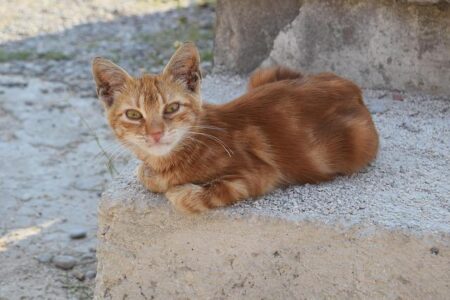West and Central Africa Update: July 3, 2025 – Emerging Security and Political Challenges
The month of July has brought to light critical developments across West and Central Africa, revealing persistent security threats alongside shifting political landscapes. Mali is witnessing a marked intensification in violent activities orchestrated by Jama’at Nasr al-Islam wal Muslimin (JNIM), exacerbating the nation’s ongoing struggles with insurgency and fragile governance structures. Meanwhile, Cameroon’s political arena is heating up as President Paul Biya confronts mounting opposition from a coalition demanding reform amid widespread dissatisfaction. These intertwined issues of militant aggression and political unrest not only complicate regional stability but also pose significant questions about the future trajectory of governance and security in this part of Africa. This report explores these pressing matters in detail, considering their broader implications for both local populations and international stakeholders.
Mali’s JNIM Violence Escalates: Evaluating Impact and Countermeasures
The first half of 2025 has seen a disturbing rise in attacks linked to Jama’at Nasr al-Islam wal Muslimin (JNIM) throughout Mali, signaling an alarming escalation in armed conflict that jeopardizes civilian lives and regional peace. According to recent field reports, there has been a notable uptick not only in the number but also the sophistication of assaults targeting military bases as well as non-combatant communities.
Key features characterizing JNIM’s evolving tactics include:
- Enhanced Operational Coordination: The group now frequently conducts simultaneous strikes across dispersed locations, demonstrating improved strategic planning.
- Broadening Target Spectrum: Beyond traditional military objectives, JNIM increasingly attacks humanitarian organizations and local villages—actions that severely disrupt aid delivery efforts.
- Territorial Ambitions: Efforts to assert control over strategic zones have intensified clashes with government forces, fueling cycles of violence that undermine state authority.
The Malian government has responded by deploying additional troops to conflict hotspots while bolstering intelligence-sharing frameworks domestically and with international allies. Collaborative initiatives aim at dismantling JNIM’s networks through enhanced surveillance capabilities. The effectiveness of these measures can be summarized as follows:
| Tactical Approach | Anticipated Outcome | Status Update |
|---|---|---|
| Augmented Military Deployment | Improved protection for vulnerable populations | In Progress |
| Strengthened Intelligence Cooperation | Easier identification & disruption of threats | Proven Effective |
| Diplomatic & International Assistance Programs | Magnitude boost for operational resources & training support | Awaiting Full Implementation |
Cameroon Faces Political Upheaval Amid Upcoming Elections: Analyzing Biya’s Opposition Landscape Â
Navigating his fifth decade in power, President Paul Biya confronts an increasingly fragmented opposition ahead of Cameroon’s forthcoming elections scheduled later this year. Public frustration mounts due to economic stagnation marked by inflation rates exceeding 8%—the highest since 2017—and persistent mismanagement within public institutions.
This electoral cycle is shaped by several pivotal concerns influencing voter attitudes:
- Pervasive Corruption Allegations: Repeated accusations against high-ranking officials have eroded confidence in governmental integrity.
- Sustained Regional Insecurity:The protracted Anglophone crisis continues destabilizing Northwest and Southwest regions where separatist violence persists.
- Eroding Economic Conditions:A surge in unemployment rates nearing 15% coupled with rising living costs fuels demands for comprehensive reforms.
- Synchronized Military Exercises: Regularly scheduled cross-border training enhances interoperability between armed forces confronting shared threats.
- Cohesive Intelligence Networks: Create centralized platforms facilitating rapid exchange on emerging risks tied to jihadist movements.
- Civic Engagement Programs: Pursue grassroots partnerships empowering communities vulnerable to radicalization through education initiatives promoting social cohesion.
Initiative Description Synchronized Military Exercises Boost combat readiness via collaborative drills.
< tr >< td>Cohesive Intelligence Networks
< td>Create real-time data sharing hubs enhancing threat anticipation.
< tr >< td>Civic Engagement Programs
< td>Energize local resistance against extremist ideologies.
Looking Ahead: Navigating Stability Challenges Across West-Central Africa   ​
The unfolding crises witnessed recently—from escalating militant violence disrupting Mali’s fragile peace framework to mounting political pressures challenging long-standing leadership structures like those seen with President Biya—highlight complex hurdles facing West-Central African nations today.This dynamic environment demands sustained cooperation between governments regionally along with active engagement from global partners committed toward fostering durable peace solutions grounded on inclusive governance models.
If effectively addressed through integrated security measures combined with transparent democratic processes responsive to citizen needs—the prospects exist not only for mitigating immediate threats but also laying foundations conducive toward long-term stability across this geopolitically vital region.< / p >
| Main Opposition Figures/Groups  | Political Affiliation | Core Campaign Focus |
|---|---|---|
| Delphine Zanga (New Vision Party) | Social Democratic Front (SDF) | Anti-Corruption Measures & Electoral Reform |
| Maurice Kamto Movement for the Rebirth of Cameroon (MRC) National Dialogue & Peacebuilding Initiatives | ||
| Anglophone Coalition Representatives Various Parties Federalism & Greater Autonomy Demands | ||
The growing momentum behind these challengers reflects widespread calls among Cameroonians seeking accountability after decades under one leader—a sentiment echoed during recent mass protests demanding democratic renewal across major cities like Douala and Yaoundé.
Enhancing Regional Collaboration: A Unified Front Against JNIM’s Expanding Influence Across West Africa Â
The intensification of Jama’at Nasr al-Islam wal Muslimin operations within Mali reverberates beyond national borders—exposing vulnerabilities throughout West African states that necessitate coordinated defense strategies. Recent incidents involving synchronized attacks on both military installations and civilian centers underscore how fragmented responses risk enabling further destabilization.(Source).
A concerted effort among G5 Sahel countries alongside neighboring nations is imperative to curtail JNIM’s operational reach through multi-faceted approaches including intelligence integration, joint military drills, community resilience programs aimed at countering extremist propaganda campaigns targeting youth recruitment pipelines..







